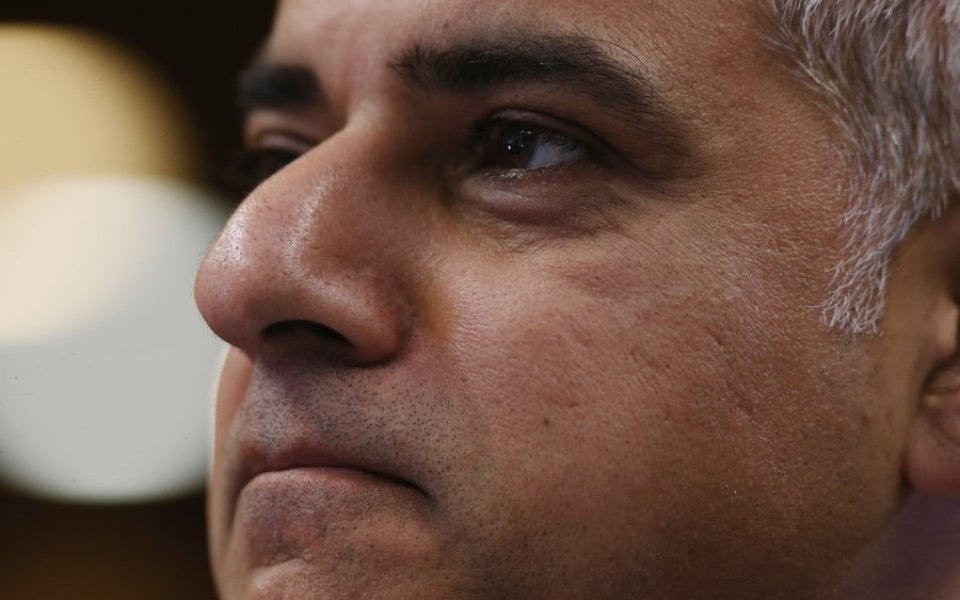London mayoral election 2016: Sadiq Khan has danced into the lead over Zac Goldsmith for London mayor, but how important will voter turnout be on 5 May?

In three months’ time London will have a new mayor, ending the eight year era of Boris. Sadiq Khan may well be in the box seat with both pollsters and bookmakers at present, but the Tooting MP has a delicate dance to perform until voters head to their local polling places on 5 May.
Khan’s main rival, Richmond MP Zac Goldsmith, has certainly done his utmost to connect Khan with Labour Leader Jeremy Corbyn in every quote he issues, with the hope that a significant enough proportion of the electorate will not want to see a "Corbynite" take power at City Hall.
Khan is well aware of the potential danger Corbyn and Co. could have on his candidacy, and has taken careful steps to distance himself from Team Corbyn throughout his campaign.
The Tooting MP is no Corbynite, yet it’s well known that Khan was one of 36 MPs who nominated Corbyn for the Labour leadership election last June – and that will surely not be the last time you read or hear that sentence over the course of the next 90 days.
So what is Khan to do?
Ally himself with Corbyn, Ken Livingstone and Diane Abbott in the hopes that the newly powerful left of the Labour party can drum up enough votes in the capital – Labour Left’s stronghold – to carry him into City Hall?
Or, does Khan overtly shun the "Corbynistas" to broaden his appeal, while still hoping that enough of the new Labour members turn up to support a Labour candidate regardless?
Read more: Khan extends lead over Goldsmith in mayoral election
One key consideration that must have been looked at closely before Team Khan plotted their strategy is voter turnout.
For all of the column inches devoted to the race in these pages and elsewhere, in addition to the many TV and radio appearances by the two main candidates, voter turnout for London mayoral elections has historically been poor.
Two-thirds of the electorate may have turned out to vote in last May’s General Election; but the high water mark for a London mayoral election is just 45.3 per cent, when Boris swept into office at the expense of Ken Livingston in 2008.
With the prospect of a referendum on EU membership looming large in the national media, and a race lacking the star power of Boris or the provocative nature of Ken, it would be a brave punter to back turnout approaching anywhere near 45 per cent come 5 May
Many observers believe that it would take turnout levels approaching 2008 to see Zac Goldsmith triumph, but that may not be the case.
The Tories racked up over 1.23m votes across the 73 London seats at the General Election, which should be more than enough for Goldsmith to defeat Khan. Taking the last four mayoral elections together, the winner has needed on average just 957,000 first preference and transfer votes to prevail.
With the Liberal Democrats nowhere to be seen this time, and the Tories picking up three of their former seats in Twickenham, Kingston, and Sutton in May, Goldsmith may have an even stronger base of support than Boris did in 2008 when Brian Paddick got nearly 10 per cent of all first preferences.
Labour’s London efforts last May, headed up by the Tooting MP himself, saw seven seats gained and over 1.5million votes cast – all pre Corbyn – suggests Khan should comfortably stroll into City Hall. But there is a problem with that line of thinking.
Corbyn’s rise has brought hundreds of thousands of new Labour party members and recent reports suggest a sizeable chunk are "well to-do urban dwellers", i.e. Londoners.
It wouldn’t take the greatest strategic mind in the world to come up with a strategy of appealing to the left of the Labour party being the key to winning the London mayoral election. So why is Khan doing precisely the opposite?
He hasn’t stood shoulder to shoulder with Corbyn or Livingstone yet, and we’ve even seen a bizarre editorial published from Livingstone in recent days that managed to endorse a Labour mayor for London without mentioning Khan by name once.
Perhaps he has read the numerous reports into Labour’s failings in the General Election which said, apart from many, many other issues, that "Lazy Labour voters" were a far bigger factor than the traditional myth of "Shy Tories".
Read more: Zac Goldsmith – The green Tory gunning for Londoners’ votes
A large proportion of Labour’s new found supporters are young, and are therefore statistically less likely to vote. Khan is distancing himself from Corbyn tells us that he doesn’t believe he can count on new Labour supporters to be enough to get him over the line.
We may have seen Labour win the Oldham West by-election with ease in December, but that was due to a very popular local candidate in Jim McMahon, and a conspicuous absence of Mr. Corbyn and his vociferous supporters. Khan must have been watching that contest intently.
If turnout in three months’ time is average for a London mayoral election, 38.1 per cent, Khan runs the risk of being pipped to the post by Goldsmith as his support trends older and thus are more likely to actually vote.
Neither Khan nor Goldsmith has the star power of Boris, which means that the traditional rule regarding voter turnout should apply come 5 May – the lower the better for Goldsmith and the Tories.
There is good news for the Tooting MP however, Sporting Index’s political trading team are expecting voter turnout to be close to 40 per cent, which should be enough for Khan to become the next mayor of London.